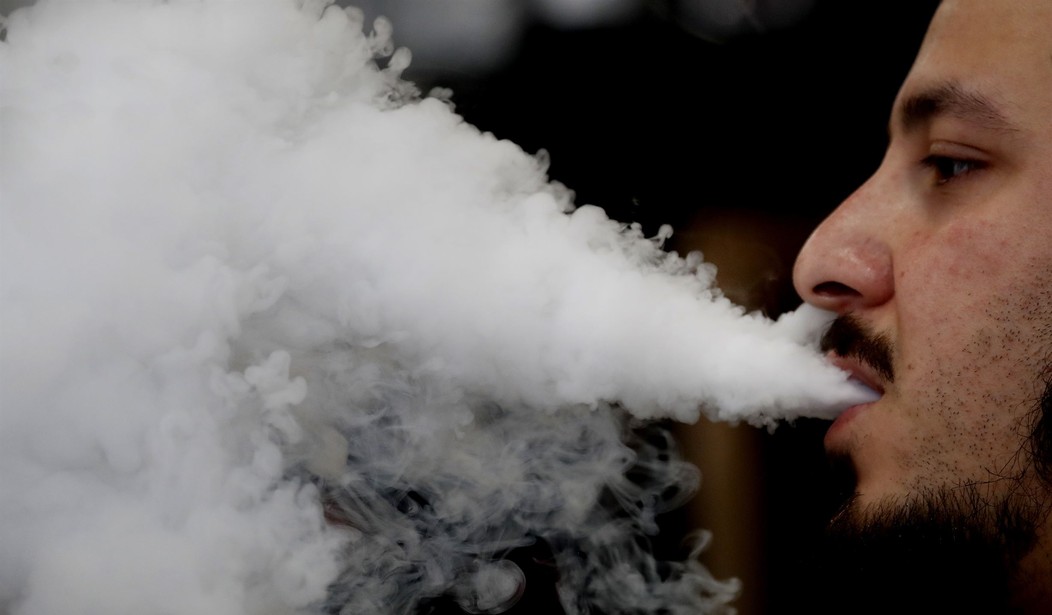Since 2018, when then-U.S. surgeon general Jerome Adams declared a youth vaping epidemic, America has been engaged in the great American vape debate. In the three years since the infamous shot heard round the anti-tobacco control world, states and localities and the federal government have pushed to restrict adult access to e-cigarettes through taxes, regulations, and some have supported all out prohibitions.
Over the past week, two notable events took place in the debate. On Wednesday, June 23, U.S. Rep. Raja Krishnamoorthi (D-IL.) chaired a House Oversight subcommittee hearing titled “An Epidemic Continues: Youth Vaping in America.” On June 28, the e-cigarette manufacturer JUUL reached an agreement with the state of North Carolina to a consent order, which requires the manufacturer to pay state $40 million over the next six years, as well as establish and maintain certain marketing requirements.
For advocates of tobacco harm reduction products, the subcommittee hearing was a train wreck. The hearing featured testimony from Senator Dick Durbin (D-IL.) and Acting Commissioner of the U.S. Food and Drug Administration (FDA), Dr. Janet Woodcock.
Senator Durbin remarked that the “burden is on the manufacturer” to show that their products help smokers quit, stating “remember that claim, made over and over again? Prove it! You can’t. They know they can’t.”
The hearing then takes a turn for the worse when it becomes apparent the acting FDA commissioner is unfamiliar with certain FDA tobacco committees. For example, Rep. Mark DeSaulnier (D-CA) asks Dr. Woodcock whether she trusts “the tobacco products scientific committee and their advice.” After a bit of eye blinks, the acting head of the FDA responds that she’s “not familiar with [that] committee,” and apologizes, remarking “I’m kind of new to the job.”
Recommended
Despite Durbin’s insistence that e-cigarettes don’t help people quit smoking, an estimated 10.8 million adults were using e-cigarettes, and 3.3 million had successfully quit smoking as of 2016. Moreover, a 2019 study found electronic cigarettes and vaping devices to be “twice as effective” as nicotine replacement therapy.
Dr. Woodcock’s admission to lacking knowledge of FDA tobacco committees is even more troublesome as the agency struggles with regulating e-cigarettes. Throughout the duration of the hearing, multiple lawmakers urged the FDA to not approve any premarket tobacco product application (PMTA). Per court order, the FDA must complete PMTAs by September 9, 2021. The agency is currently processing more than six million applications.
With the announcement of JUUL’s consent order in North Carolina, tobacco harm reduction is being subjected to even more misinformation. Per the order, the e-cigarette manufacturer will pay $40 million, as well as “make drastic changes to the way it conducts business.” Changes include prohibiting any additional flavors without FDA authorization, and a ban on sponsorships and using influencers to market products, among other marketing provisions. Retail sales of JUUL must include “using a barcode scanner” for age verification purposes. JUUL also must implement and maintain a “retailer compliance secret shopper program,” and must conduct “no fewer than 50” retail visits per month and “at least 960” per year.
In a press conference, North Carolina Attorney General Josh Stein noted that the “consent order represents a meaningful victory.” It’s not entirely a victory as many of the order’s requirements were already in place by JUUL. For example, in October 2019, JUUL pulled all flavors except menthol and Virginia tobacco. Further, the company only submitted PMTAs for those two flavors, and thus, per FDA regulations, cannot sell other flavors.
JUUL has also already implemented a robust age verification system that not only scans, but locks the point-of-sale system until an ID is approved, as well as “imposes automatic limits on the amount” of JUUL products that can be sold. JUUL has even already planned “to stop distributing JUUL products to any retailer” that is not compliant with its program by May 2021.
Most damaging in the consent order is that JUUL is banned from making health claims in regards to its product being safer than combustible cigarettes. The FDA already bans companies from making such claims, unless a manufacturer can successfully complete a modified risk tobacco product application (MRTP). Currently, only 12 products are authorized to market their products as reduced risk. JUUL however, could possibly be granted a MRTP, which would affect the consent order and its terms.
Again, the order is not so much meaningful as it now just requires JUUL to do what it was already doing. And, this redundant consent decree was paid for by North Carolina taxpayers who could have seen their money go for more meaningful purposes.
Ultimately, these recent events only add to the growing misperception of e-cigarettes. Americans are more likely to believe vapor products are more, or just as harmful as cigarettes, and this misperception has increased in recent years.
In the United Kingdom, the government actively promotes the use of e-cigarettes as a tool to help smokers quit. In the United States, it’s as if all government officials from regulators to lawmakers to servants of our judicial system, are actively against harm reduction products for smokers.
Consumers and taxpayers deserve public servants who understand science and are ready to help people quit smoking traditional cigarettes with harm reduction products.

























Join the conversation as a VIP Member